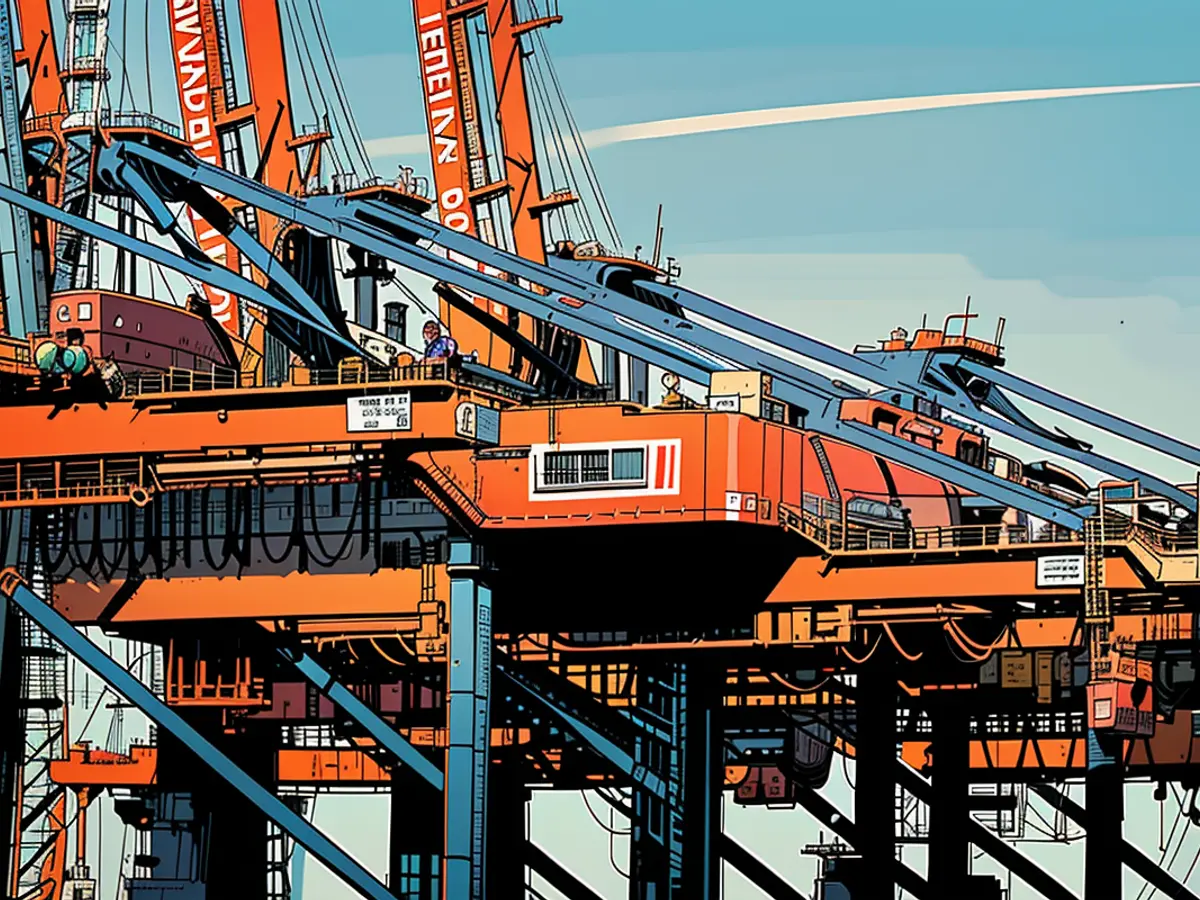Hamburg port operator HHLA increases profits sharply
After a lackluster first quarter, logistics giant HHLA reports a strong profit. Despite diversions around the Suez Canal, the container business is thriving. However, ambitious targets for 2025 are unlikely to be met, and MSC's entry is not yet final.
In the run-up to Swiss shipping giant MSC's entry into HHLA, the Hamburg-based logistics company has significantly increased its revenue and profit. HHLA announced that its listed subsidiary, HHLA Hafenlogistik, saw its operating profit (EBIT) rise by 72% to €38 million in the second quarter, while revenue increased by almost 10% to €387.5 million.
The container business saw growth. Despite necessary adjustments due to disruptions in supply chains, HHLA CEO Angela Titzrath emphasized that the company managed to increase cargo volumes between Hamburg and other European ports due to diversions around the Suez Canal. The leading terminal operator at Germany's largest seaport also benefited from longer container dwell times, which increased storage revenue.
Once again, the terminal in Tallinn shone, while Trieste felt the impact of the crisis in the Red Sea. In HHLA's Odessa terminal, operations over the Black Sea remained at a standstill due to regulatory instructions.
HHLA maintained its forecast for an annual EBIT of €70-100 million for the Hafenlogistik subsidiary and €85-115 million for the real estate segment. However, the company's target of achieving €400 million in EBIT for the entire group by 2025 now appears unattainable due to ongoing conflicts, such as the war in Ukraine, and market changes. HHLA now expects to reach this target by 2027 at the latest.
By then, HHLA, assuming the plans of Hamburg's red-green government go as planned, will likely have the world's largest shipping company, MSC, as its second major shareholder alongside the Hanseatic city. The deal, which has sparked controversy in Hamburg, home to Germany's largest container shipping company Hapag-Lloyd, has faced criticism not only for economic reasons but also due to the city's strong identity tied to the port. There have been several worker strikes.
Before MSC's entry can be finalized, it must be approved by the Hamburg Parliament and the EU Commission. If both give the green light, the deal is expected to be completed this year. However, there have been delays as the Parliament did not provide its full approval as expected in early July. The topic will be revisited at the first parliamentary session after the summer break on September 4, following an initiative by the opposition.
HHLA's anticipated partnership with MSC has positively impacted its financial performance, as evidenced by the substantial increase in its listed subsidiary's operating profit and revenue. In the context of the EU Commission's upcoming review of the deal, there have been some labor-related challenges, with several worker strikes occurring.








